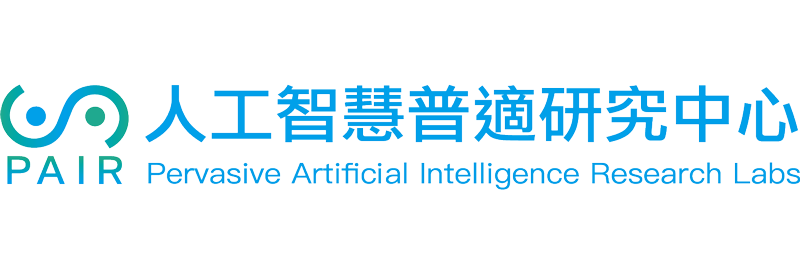Pervasive Artificial Intelligence Research (PAIR) Labs
Intelligent Interactive Platform with Applications to Healthcare and Home Care – Development of Artificial Intelligence – based Brain Computer Interface
Principal Investigator:Professor Kuo-Kai Shyu
—
Summary
This project aims to develop an artificial intelligence (AI)–based brain computer interface (BCI) system to decode brain functions on Electroencephalography (EEG) data. The developed AI-based EEG techniques will be applied to three main research fields, including medical care, home care, and scientific education. From the medical care aspect, we will design a closed-loop BCI system for rehabilitation treatments in stroke and cognitive impairment patients. By detecting patients’ brain statuses using AI, transcranial electric stimulation (tES) will be utilized as a biofeedback to restore patient’s brain functions. From the home care aspect, an AI-based BCI device for severely paralyzed patients will be designed to help them to communicate with external environments. Patients’ vital signs (e.g., heart rate, respiration, blood pressure, etc.) will also be detected to manage a patient’s physiological status. In the third part, a real-time BCI system with a biofeedback system in an education environment will be developed. Students’ cognitive loads and emotional statues will be detected using deep learning networks. The research outcomes of this project are expected to establish a closed-loop BCI system to help the rehabilitation of stroke and dementia patients, to improve the communications of paralyzed patients, and to design better learning strategies for students.
Keywords
Closed-loop brain computer interface and electroencephalography (EEG)
Innovations
Our key achievements include the hardware design of close-loop EEG-based BCI system and the development of deep learning neural network for EEG applications. Hardware achievements:
- Multi-channel wireless EEG with 4, 8, 20, and 40 channels.
- High-sensitivity EEG dry electrode with high-performance impedance matching circuit.
- Wearable vital-sign monitoring watch for real-time monitoring of heart-rate, heart-rate variability, cuffless blood pressure, exercise ECG.
- 3D posture recorder using eleven inertial measurement units (IMU) with 100 Hz digitization rate.
AI for EEG applications:
- Real-time emotion recognition in EEG data using Long-short term memory network.
- Implementation of a Dry-Electrode EEG BCI system using Convolutional Neural Network.
- Application of deep learning to classifier sleep EEG waves.
- Bilateral motor cortices modulation by task-concurrent dual transcranial direct current stimulation in subacute stroke patients.
- Prediction of post-stroke epilepsy (PSE) using artificial intelligence on EEG data.
- Use of artificial intelligence to detect emotion and cognitive load during learning in classroom environments.
Benefits
- EEG data measured by wearable devices are wirelessly transmitted to cloud servers.
- Deep learning neural networks are constructed on our cloud computation server in order to target different EEG applications.
- The established closed-loop BCI and the EEG cloud computing architecture will be applied to the following applications:
- Using AI to detect user’s emotion statuses can help people to manage their mental stress and emotions (Fig. 2a).
- Using AI to recognize user’s movement intention. The EEG feedbacks from stroke or paralyzed patients provide biomarkers for clinical physicians to design better rehabilitation programs for patients.
- Using AI to detect user’s sleep statuses can alleviate physicians’ workload in examining huge amount of sleep EEG data (Fig. 2b).
- Using AI to improve the performance of EEG-based BCI will allow paralyzed patients (lock-in syndrome) to achieve communication with external environments.
- Using AI to find out good biomarkers for epilepsy in EEG data. Detection of biomarkers for epilepsy patients could help us understand the mechanism of epileptogenesis in patients and develop suitable preventive treatments.

